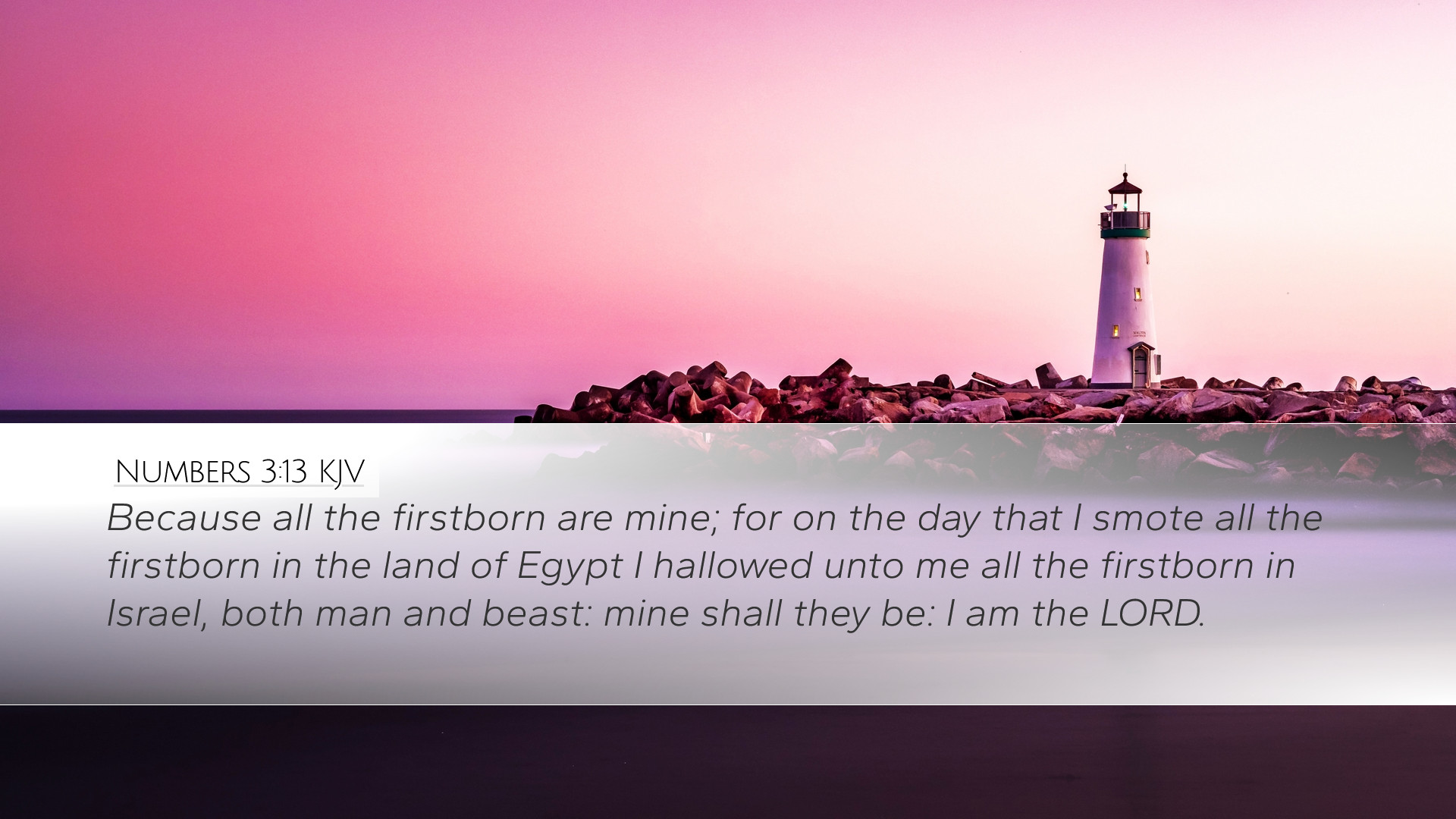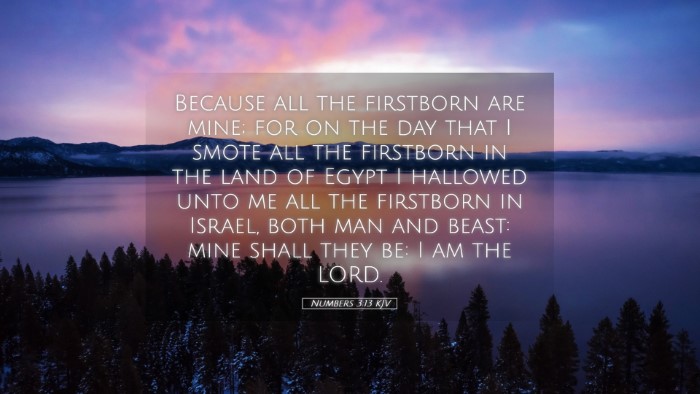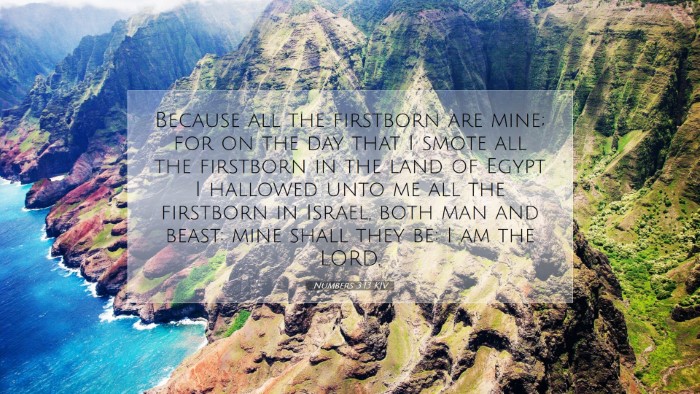Commentary on Numbers 3:13
The verse Numbers 3:13 states, "For all the firstborn of the children of Israel are mine, both man and beast: on the day that I smote every firstborn in the land of Egypt I sanctified them for myself." This passage carries profound theological significance and various interpretative dimensions worthy of careful study.
Contextual Background
The Book of Numbers occupies a critical place in the Pentateuch, detailing the Israelites' journey from Sinai towards the Promised Land. Numbers 3 particularly focuses on the Levitical priesthood and the roles assigned to the Levites.
This chapter reiterates God’s claim over the firstborn as a remembrance of the Exodus event, emphasizing the sacredness of life that belongs to Him. Contextually, it underscores God's sovereignty and the serious responsibility of His chosen servants.
Theological Insights
-
Divine Ownership:
The firstborn serves as a symbol of promise and inheritance. Matthew Henry notes that the firstborn is consecrated to God, asserting His rights over His people. This reminds us of the divine claim over our lives, echoing the New Testament principle of believers being bought at a price (1 Cor. 6:20).
-
Faithfulness in Service:
Adam Clarke reflects on the Levitical service as a model for dedicated ministry. Just as the Levites were chosen for a specific purpose, so believers today are called to serve faithfully in their respective roles within the body of Christ.
-
Redemption and Sacrifice:
Albert Barnes mentions the connection between the Exodus and God’s demand for the firstborn. The barbaric judgment on Egypt's firstborn foreshadows the ultimate sacrifice of Christ, the firstborn among many brethren (Rom. 8:29), illustrating the theme of redemptive purpose throughout Scripture.
Interpretations and Applications
This verse prompts believers, especially pastors and theologians, to reflect on their understanding of God’s ownership and sanctification of their lives. The firstborn in Israel signifies not merely a biological status but a spiritual calling.
-
Consecration to God:
Every believer is called to live a sanctified life. Numbers 3:13 serves as a powerful reminder that our lives, like the firstborn of Israel, belong to God. We are set apart for His use and must live in a way that reflects this divine ownership.
-
Emphasizing Responsibility:
The responsibility of the firstborn was significant in ancient Israel; thus, believing leaders today must recognize the weight of their calling. They are to lead by example, ensuring that they represent Christ accurately and honorably in their communities.
-
Understanding Redemption:
This verse can fuel a deeper appreciation for the doctrine of redemption. The early Christians would see in this the fulfillment of redemption through Christ. Just as the Israelites' firstborn were spared, Christ's sacrificial death secures eternal life for believers.
Conclusion
Numbers 3:13 is not merely a command but a foundational truth regarding God's sovereignty and grace. As pastors and theologians contemplate this verse, they are encouraged to draw connections between the Old and New Testaments, underscoring the continuity of God’s plan through redemption.
In light of these reflections, let us recommit ourselves to recognizing God’s claim over our lives, pursuing holiness, and serving Him with gladness, as we await the consummation of His redemptive work.


